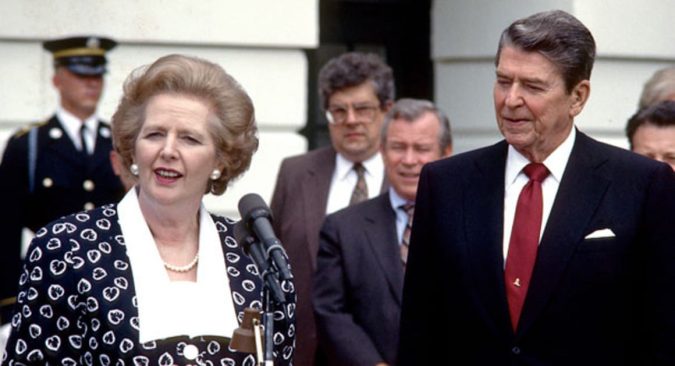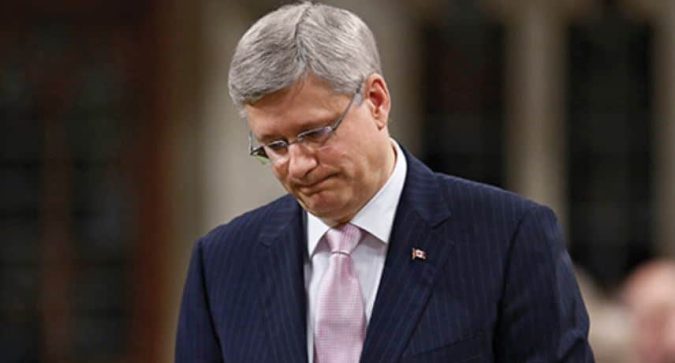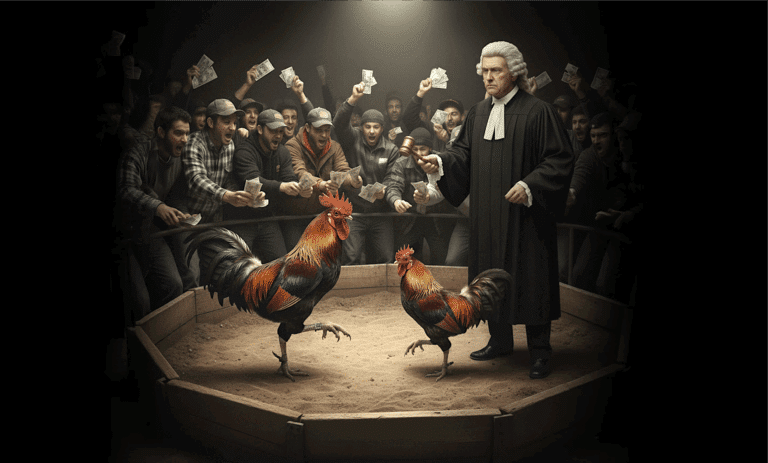I won’t pretend to know how the Conservative Party of Canada can win the next election, but we are all familiar with the formula for losing. The Conservatives lose when they basically agree with the Liberals on the big issues of the day – on climate change, on immigration, on identity politics and censorship of the politically incorrect, on the path to reconciliation with First Nations – while trying to finesse a slim victory through tailoring policies to ever-narrower niches based on focus-groups and detailed polling. Resting electoral success on a smorgasbord of boutique benefits makes the party look unprincipled and grasping, like it wants power too much and therefore can’t be trusted with it. This formula is anything but inspiring; it’s dispiriting in its cynicism. It leaves the party feeling uncomfortable trying to sell a near-Liberal agenda to its base, while looking weak and unconvincing trying to sell its boutique policies to the swing voters.
In the end, victory for the Conservative Party (and its PC predecessor) has usually come only when voters are truly sick and tired of Liberal malfeasance. This time around, however, there is no evident magic-bullet issue or Liberal scandal for electoral victory. Even if one were to appear, it remains unknown and even then is likely to change before the next election. If that’s how the Conservative Party is to win, it rests on pure hope, and hope is not a tactic, let alone a strategy. Left-wing parties in Canada win elections not by advancing great policies, but by selling hope and charisma (while demonizing their opponents). They sell the sizzle, not the steak.

The Conservative Party, however, is congenitally incapable of winning on sizzle. It needs to counter the left not with an inept version but with a serious, thoughtful alternative. It needs a leader who leads and shapes rather than follows public opinion. The movement needs someone with principles and conviction, and the ability to sell them to the public; someone who isn’t ashamed of advocating non-CBC-approved ideas. Bold, intelligent leadership isn’t sufficient to win an election, but it is necessary for a political party that is chronically perceived to be oblivious to the zeitgeist.
To win, the party needs to change the minds of a certain percentage of voters, shifting them from slurping the pabulum they are constantly fed by other political parties and the media to chewing on the hard truths they need to hear. Political success is not about finding the votes or moving to where public opinion is and pandering to it. It’s about winning portions of the public over, converting the persuadable middle to better ideas. That requires courage derived from success in intellectual combat, which together may also yield a third needed characteristic: staying power. Flashy slogans and talking points would be out, depth and thoughtfulness in. There are intelligent arguments in support of conservative principles; we need political leaders who’ll start articulating them.
Which party forms government matters a lot to career politicians, but it shouldn’t matter so much to the rank-and-file. What should is the long-term impact of the leader they select. A “safe” leader who won’t spin the dial even if elected is worse than a bold leader who moves the needle in opposition.
Pierre Trudeau, for all his faults, was a leader. He pulled voters to his way of thinking. Brian Mulroney, though often an opportunist, was somewhat of a leader, taking principled and unpopular stands with the GST and free trade (which, for you young readers, used to be controversial) and selling them on their merits. Preston Manning was a leader when he was on his favourite themes of fighting the deficit and debt, advocating Senate reform or standing up to Quebec. Manning didn’t gain power, yet he was so persuasive at arguing the need to curb spending and control interest costs that the Chretien-Martin Liberals had no choice but to adopt his policies in the mid-90s. Manning and Stephen Harper also spent years pushing a harder federal line to prepare for the next referendum on Quebec separation, with eventual success.

Therein lies an important lesson for Conservative Party members who will select a leader in the coming months: be less concerned between now and the next election about forming government and more interested in exercising influence, in changing the direction of the country’s political discussion. The NDP has never formed the Government of Canada, yet nearly everything in its platform from the 1960s has been implemented. That’s influence!
Moreover, the reduced NDP caucus today still has a better chance than the Official Opposition Conservatives of influencing the direction of policy – on pharmacare, on pipelines, on homelessness, and so on. The NDP has succeeded by doing the hard work of selling its misbegotten ideas through repetition and conviction over a long period of time. Which party forms government matters a lot to career politicians, but it shouldn’t matter so much to the rank-and-file. What should is the long-term impact of the leader they select. A “safe” leader who won’t spin the dial even if elected is worse than a bold leader who moves the needle in opposition. A party that is not lucky enough to be a country’s default ruling organization should choose substance over electability every time. That sounds hard, and it is. But it can work.


This next point might be hard for Conservative stalwarts to hear, but Harper was not a leader. He was certainly competent, was arguably the most adept minority prime minister in Canada’s history, and took a principled stand on key foreign issues – like Israel and Russia. But he achieved nothing special or lasting. Harper won a narrow victory because the Liberals blew themselves up with the Sponsorship Scandal, and then it took him two more tries to gain a majority. Once in power, he did practically nothing to change Canada’s political and economic cultures, the way Margaret Thatcher did in the U.K. and Ronald Reagan did in the United States. Everything Harper did was undone within a year or two of Justin Trudeau’s victory, except for the two points he knocked off the GST. Despite having little to lose (most voters would simply never regard him as nice), Harper didn’t even ram through a couple of controversial pipelines or highways as a legacy.


If Conservatives want to halt the march of the left-wing agenda, they need more than a competent and semi-electable manager. I’m going to offer some suggestions for what members should look for in their next leader. None should be seen as a litmus test in itself, the way marching in Pride parades and apologizing for the sins of our forefathers are for the left. They are, rather, ways that a leadership candidate could signal that he or she is a politician apart from the pack – a leader with the intelligence and courage to bend the political conversation in a more conservative direction.
On big issues like climate change, a leader must unveil and then defend his or her position years in advance of an election campaign to have a chance of bringing voters around against a chorus of alarmist rhetoric. Kim Campbell, Brian Mulroney’s hapless appointed successor, almost had it right in 1993 when she said election campaigns are no time to debate serious issues.
To begin with, I’m looking for a leader who fights back on the “climate emergency” hyperbole. He or she doesn’t have to be a fully-fledged denier (although that calumny will be flying, of course). He or she doesn’t have to know the science well enough to refute “real climate scientists” in detail. But he or she should at least read a book or two about the subject, and know the remarkable range of views among credentialed scientists. They are not a monolith. He or she should know that most of the alarmist rhetoric goes well beyond anything supported by the Intergovernmental Panel on Climate Change. I’ll settle for someone who sensibly points out that there is no imminent crisis, so we don’t have to panic and we can take time to work things out in an orderly, peaceful, economically non-destructive manner.
More important, I’ll settle for someone who unashamedly stands up for Canada’s oil and natural gas industry, pointing out that the best contribution we can make to reducing global CO2 emissions consists in selling our energy commodities to Asia to replace their vast coal-fired power generation. Pointing it out and, more, arguing it persuasively and in enough depth to be credible with well-educated voters.


And then – the crux – sticking to the position thanks to a team with the sophistication to have pre-armed the leader with arguments and evidence to counter the guaranteed denunciations that will rain down upon them for months and years. It can be done; conservative leaders around the world are doing the same on equally controversial issues. This mindset would be decidedly unlike leadership candidate Peter MacKay’s pathetic climb-down from his entirely defensible tweet supporting the Edmonton counter-demonstrators who peacefully dismantled the railway blockade, aptly described here.
Putting our energy sector to use reducing global emissions was the right message in 2019, but Andrew Scheer was afraid to sell it. His policy announcements were mincing and weak, mumbled once or twice and then forgotten. On big issues like climate change, a leader must unveil and then defend his or her position years in advance of an election campaign to have a chance of bringing voters around against a chorus of alarmist rhetoric. Kim Campbell, Mulroney’s hapless appointed successor who led the party to its historic wipeout in the 1993 federal election, almost had it right when she said election campaigns are no time to debate serious issues.
What she should have said (and perhaps meant) is that an election campaign is not the time to start discussing important policy issues – especially when taking unfamiliar positions. Ground needs to be broken, seeds need to be planted, and tender shoots need to be nurtured long before the harvest can be brought in. The aforementioned Reagan, for example, spent virtually his entire life preparing to wage the central campaign of his eventual presidency – rolling back Soviet tyranny and global Communism – and at least one-third of his lengthy career openly campaigning on that subject. Reagan was an exceptional case, of course. But asking a principled Canadian Conservative leader to develop, unveil and then stick to a theme for, say, three or four years between federal elections isn’t unreasonable. It’s simply necessary.

I’m also looking for a Conservative leader who fights back on illegal immigration. Immigration has been sold to Canadians as the remedy to our demographic problems, a solution to our pending labour shortage. But it can only be the solution if the vast majority of immigrants are willing and able to enter the labour force quickly, and remain productive for decades. If we are bringing in more dependents via family reunification and illegal border-jumpers who have no employable skills and speak neither French nor English, we will only worsen our demographic problems and further fray our social fabric. Accordingly, conservatives should be less fussed about the absolute number of immigrants than with the proportion who fall into the economic class.
Conservatives also need to recognize that working immigrants are among the more conservative members of society. They can become party voters. Here, too, there is much potential for a principled and courageous leader backed by an intelligent team, for there are examples worldwide to draw on to illustrate the legitimacy of and need for controlled immigration based on the national interest. A left-of-centre government in New Zealand has even done so. Canada’s left-wing parties are, in fact, out of step not only with ordinary Canadians but most national governments around the world.

I’m looking for a Conservative leader who is vocal against “woke” culture and intersectional victimology. These are the most divisive and destructive ideologies going, pitting everyone against everyone. Some individuals are more privileged than others; but those privileges rarely track demographic traits very well. The solution to educational, nutritional, housing, and other deficits is to fix those deficits where they occur rather than to punish whole classes of allegedly “privileged” people in a failed attempt to equalize outcomes after the fact. The obsession with women as victims is especially nonsensical in an age when women make up majorities not only in post-secondary education but numerous professional fields.
A leader who loudly and proudly proclaims allegiance to conservative principles of justice – that one is innocent until proven guilty beyond a reasonable doubt, that fundamental justice places the onus of proof on the prosecution, and that the accused is entitled to make full answer and defence after the prosecution has closed its case – is badly needed. Gerrymandering the justice system to produce a priori “desirable outcomes” in favour of women or Indigenous people is a debasement that conservatives should never sink to.
Courage, intelligence and principle could become a suit of armour amongst the riotous costumes of the left-wing clowns. At minimum, such a person would lead a far more effective and influential opposition. And with a little luck, he or she might just sweep the field.
Reconciliation with First Nations is critical. I’m looking for a Conservative leader intelligent enough to know there’s no quick fix, but that it is a generational project. You can’t mend broken families and crushed lives from the residential school system, among other largely disastrous paternalistic policies, by issuing apologies and throwing money at band councils. More and more First Nations are realizing that improving their lot requires participation in the national and global economies.

A serious Conservative leader would encourage this evolution by championing tribal leaders who sign benefit agreements with land-use projects of every type: tourism, forestry, mining – and yes, oil and natural gas from ground to processing facility to port. Like everyone else, Indigenous Canadians benefit most from the dignity of work leading to self-sufficiency. That’s conservatism at its finest.
I’m looking for a Conservative leader who isn’t afraid of Rebel News, who doesn’t run over their reporters with buses and get their security to manhandle them, but who actually engages with them and, thereby, their large following. I say this not because Rebel News is the best outlet in the world, but because it isn’t. The left will hate it when you talk to them – but the whole point of your leadership is that you don’t let the left push you around.
We need a leader who wants to sell the conservative message at every opportunity, and shuns none. Even Ron McLean had the courage to give an interview to Rebel News on the matter of Don Cherry’s dismissal, and both parties acquitted themselves rather well. Conversely, I’m looking for a leader who will call out the CBC on its reporting biases, someone who goes on the offensive against the CBC’s hatchet-jobs.

Numerous other courageous and sensible stands could be adduced. It certainly isn’t necessary for a Conservative leader to take a contrarian position on every issue facing the public. Critically needed is a leadership hopeful who takes an intelligent, courageous, conservative, contrarian position on one or two issues – in part to prove it can be done. Last time, Maxime Bernier adopted a principled conservative stand against agricultural supply management and for free markets. That was not a huge deal in itself, but it defined him as a leader unafraid of intelligently slaying sacred cows. More than the policy itself, that is likely what nearly half the party’s membership responded to when Bernier ran. The timid half went with Scheer, won the day, and lost the battle.
Were a Conservative Party candidate to adopt even one of the positions suggested above, it would signal independence of thought and strength of character. Wouldn’t that be refreshing to see in a political leader? Refreshing, and unique, for that person would be the only such federal party leader in a field of opportunists, panderers, utopians and venomous ideologues. Courage, intelligence and principle could become a suit of armour amongst the riotous costumes of the left-wing clowns. At minimum, such a person would lead a far more effective and influential opposition. And with a little luck, he or she might just sweep the field.
Grant A. Brown has a DPhil from Oxford University and an LL.B. from the University of Alberta, taught applied ethics and political philosophy at the University of Lethbridge, practised family law, and currently runs a B&B in Stratford, Ontario.







